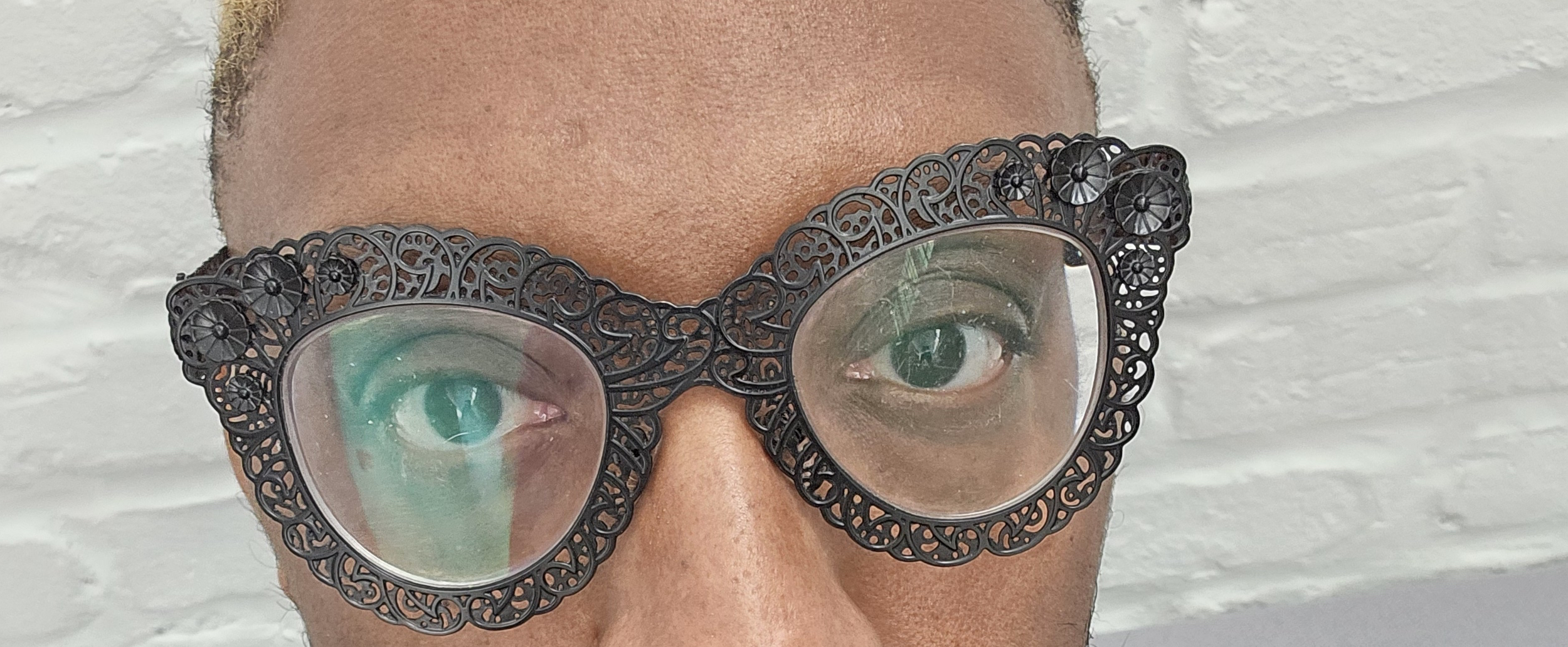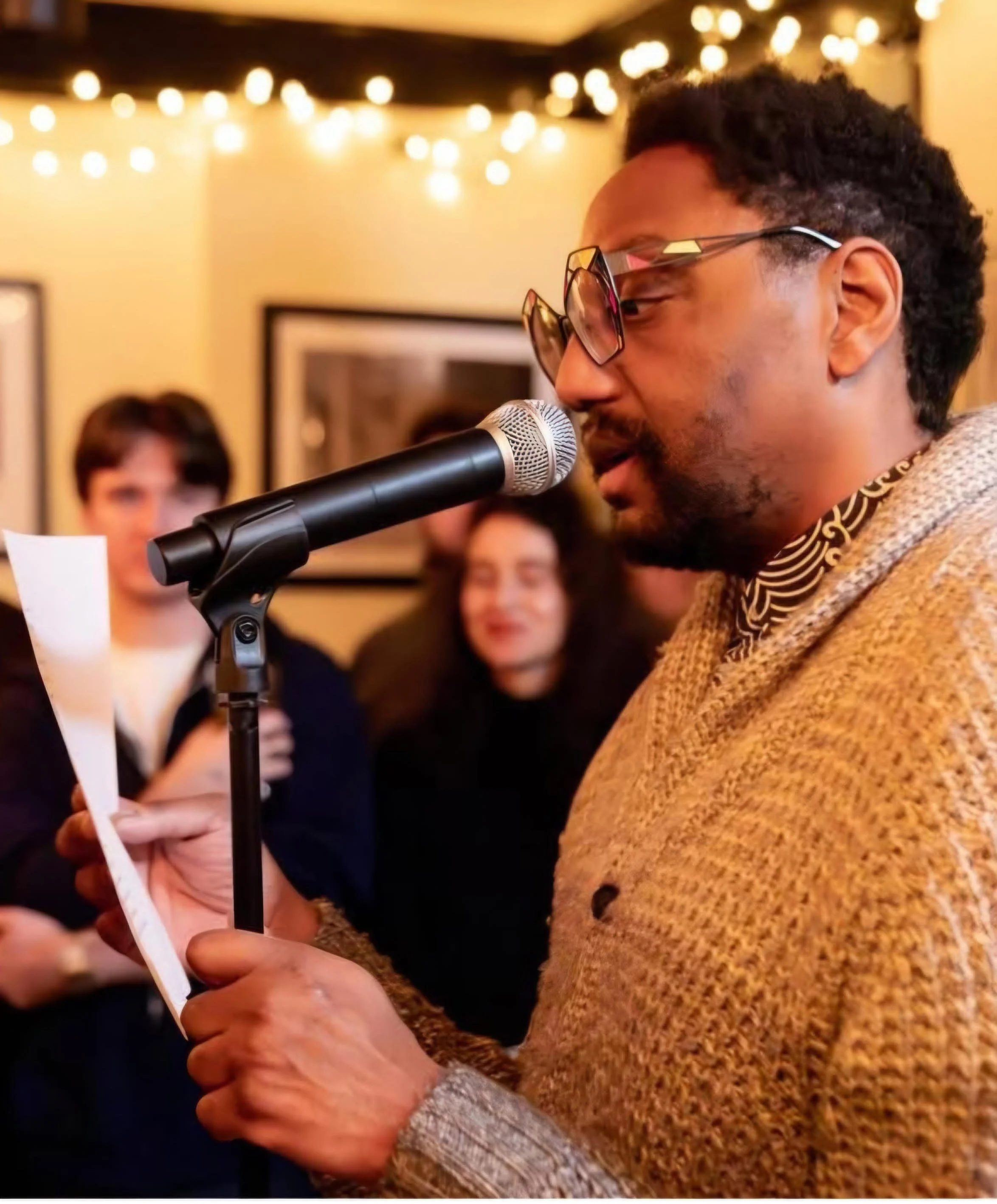
Leslie McIntosh (all pronouns respectfully used) thinks a lot about the relationship between vocal stereotypy, perseveration, cognitive flexibility, negative capability, and reaching for whatever is on the other side of Leslie's own black interiority. Leslie’s debut volume of poetry, within-group variance, was selected by Terrance Hayes for the 2025 Changes Book Prize (Changes Press, 2026) and was a finalist for the 2023 Nightboat Poetry Prize and the 2023-2024 Poetic Justice Institute Prize. Leslie’s writing has been supported by the Breadloaf Writers Conference, Callaloo Creative Writing Workshop, Hawthornden Foundation, Kimmel Harding Nelson Center for the Arts, Jersey City Arts Council, Millay Arts, The Watering Hole, Zoeglossia, among other distinctions. Leslie's poems have appeared in Adi Magazine, Beloit Poetry Journal, Foglifter, Fourteen Hills, Indiana Review, Obsidian, Ploughshares, Southern Humanities Review, Witness, the anthology In The Tempered Dark: Contemporary Poets Transcending Elegy, and widely elsewhere. Leslie has presented literary art across the country as a featured guest at universities, literary festivals, national poetry slams, and other convenings since 2005, but currently calls home a rowhouse on the stolen land of the Munsee Lenape, presently known as Jersey City, NJ, USA.

